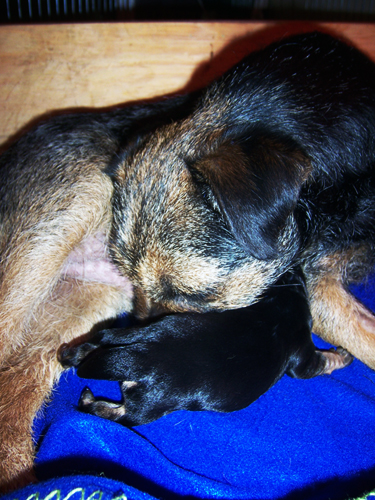McGreevy’s Thoughts on Dog Breeding
This post is part of the McGreevy seminar series. Click here for the index.
Throughout Paul McGreevy’s two day seminar, he expressed a number of opinions regarding dog breeding. Being a dog breeder myself, I anticipate I paid particular heed to his comments. I find that, in the current climate of dog rescue and puppy farms, dog breeders are constantly under scrutiny and, in general, I find myself a little defensive to conversations surrounding dog breeding.
However, McGreevy had some very interesting and thought-provoking ideas surrounding dog breeding, and he presented them in a very amenable way. That is: McGreevy didn’t breeder bash! He approached matters surround breeding dogs in a matter-of-fact way. Indeed, he spent more time blaming the system of dog breeding (i.e. breeding purebred dogs to a standard) for the problems in dogs today than critiquing breeders themselves. Fundamentally, McGreevy believes that the system for breeding dogs need to change in order to emphasise the health and temperament of dogs, and not their physical appearances.

Couldn’t resist including a photo of my current singleton litter. See here border terrier mum with her 2 day old puppy.
Domestication and dog breeds
Domestication and selective breeding have changed dogs from their wolf ancestors. For example, dog skulls have changed a great deal from the skull of a wolf, and there is also much variation between dog breeds. Not surprisingly, the brains of dogs have changed too, with a wolf brain weighing three times as much as a dog brain. Considering that the dog’s brain is part of its central nverous system, it is reasonable to assume that there may be implications for the dog’s entire nervous system. McGreevy said, “We are only just beginning to learn what we’ve done.”
One thing is for sure: We don’t have a wolf in our lounge room.
In times gone by, breeding dogs were selected on the ability to perform tasks, such as herding, retrieving, carting, or any other purpose. These days, selection is mostly based on conformation, and emphasis is being place on ‘beauty’ traits such as coat and colouration instead of structure. McGreevy believes that this current system ineffective, as 150 years of breeding dogs ‘to standard’ has resulted in a host of inherited disorders. Considering this, McGreevy believes that the dog breeding system needs to change.
Current dog breeding practices are cruel
McGreevy asserted that inherited disorders are a form of cruelty. He also put forward that, considering that the main reason dogs are euthanised in shelters is due to their temperament, breeding for good temperaments is imperative. Neither of these traits are overly considered in the current breeding system.
McGreevy believes that breed standards often are in contradiction to animal welfare. He used the British Bulldog as an example. He criticised the standard for asking for a head that is “the larger the better”, while at the same time calling for a narrow pelvis – an obvious problem for the whelping abilities of the breed. Furthermore some of the points in the standard are actually unhealthy (for example, loose skin in Shar Pei has been found to correlate with joint problems, and the skull shape of a dog influences its vision). In McGreevy’s opinion, dog breed standards have been written in a manner that is sometimes contradictory to dog well being.





